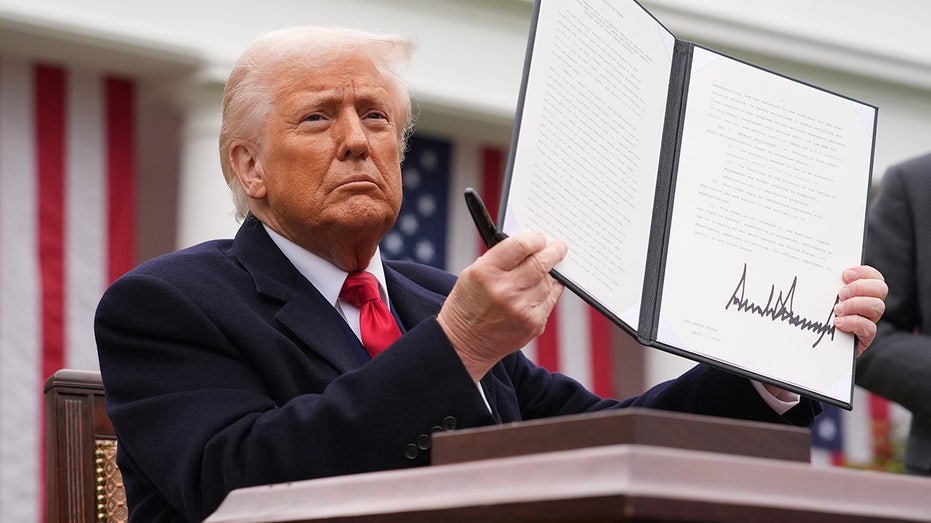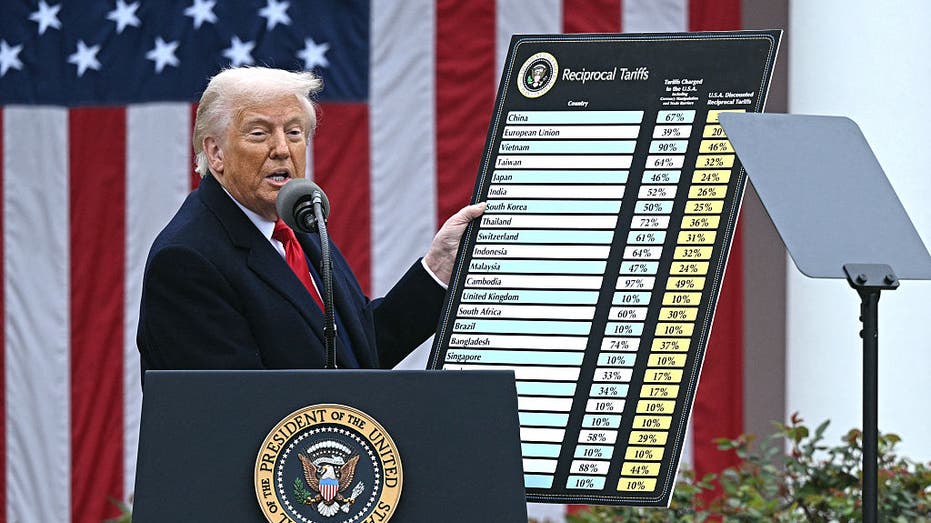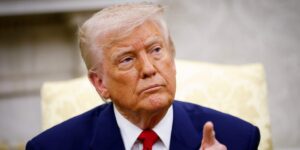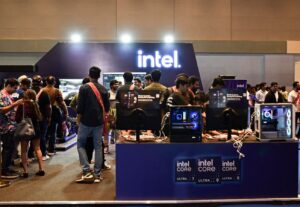Car dealers are increasingly utilizing artificial intelligence (AI) to navigate the impact of President Donald Trump’s tariffs on the auto industry — as customers flock to purchase vehicles before potential price increases.
Devin Daly, the co-founder and CEO of Impel, told Fox Business that while tariffs are causing a lot of uncertainty in the sector, the company’s conversational AI solutions available to car dealers allow them to glean “unprecedented” information on what’s top of mind for consumers.
According to Daly, inbound lead volume for cars is up roughly 25%, a metric translating into a significant increase in vehicle sales as consumers race to get ahead of the market.
“What we’re seeing is by being able to use tech to handle all of that lead response, it allows sales reps to be doing what they do best, to be in-person with customers, building relationships, closing deals, doing test drives,” he said.
CAR DEALERS MOVE TO COMBAT IMPACT OF TRUMP AUTO TARIFFS WITH AI TOOLS
Daly said that Impel’s AI solutions have been quickly updated to handle an influx of customer concerns that dealerships are struggling with. The number one question for consumers now centers around tariffs.
“I think if we see new vehicle prices rise, which I think is increasingly likely, there’s a general consensus that tariffs may be good or bad for auto retail,” he added.
“There’s an argument to be made that maybe we go back to an inventory short environment, given ordering disruption, that dealers could actually increase profitability similar to 2021. But I think universally folks accept that there will be an increase in new vehicle prices and that will be inflationary,” Daly continued.
If that happens, Daly says the industry may see a propensity shift towards used vehicles, and people will hold onto their vehicles longer — leading to an increased demand for service.
“AI can play a really critical role there, allowing dealerships to handle those inbound phone calls and help consumers schedule appointments, check vehicle status, do those common things without requiring a human,” he noted.
CHINA’S TRADE WAR WEAPONS: RARE EARTH BAN AND US DEBT DUMP COULD CRIPPLE AMERICAN ECONOMY AND DEFENSE

Trump, who views tariffs as a way to bring in tax revenue to finance his plans for tax cuts while revitalizing domestic manufacturing, recently announced plans to impose a 25% tariff on all imported passenger vehicles. This includes sedans, SUVs, crossovers, minivans, cargo vans and light trucks.
It will also hit key automobile parts such as engines, transmissions, powertrain parts and electrical components, though there are “processes to expand tariffs on additional parts if necessary.”
The Trump administration said last Thursday that the president’s move to implement such tariffs “will protect and strengthen the U.S. automotive sector.” The administration argued that foreign automobile industries have expanded due to “unfair subsidies and aggressive industrial policies” while “U.S. production has stagnated.”
Cox Automotive Senior Vice President Consumer Solutions Jessica Stafford told Fox Business that she anticipates every vehicle will be affected in some way or another — leading dealers to try and educate themselves on what their cars may be worth in the near future.
“They’re hearing what’s going on and trying to capitalize on what they’re seeing as ‘pre-tariffed cars,’ if you will, that are on the dealer’s lots today. We’ve also seen a lot of our dealers who are actually running sales and they’re out there promoting and marketing, take advantage while you can of our ‘pre-tariff deals,'” she said.
Stafford said that while some dealers have been more proactive about implementing AI solutions than others (especially since the COVID-19 pandemic), there’s nothing like “a good crisis” to kick the industry into gear.
‘THINGS HAVE TO BE RESET:’ DETROIT AUTOWORKERS SOUND OFF ON TRUMP’S TARIFFS

She also noted that AI is embedded in the company’s marketing tools, such as VinSolutions, an integration within customer relations management systems (CRMs) that allows dealers to address potential buyers in a personalized way.
The automotive marketing intelligence tools also perform predictive scoring for consumers. So, is this person highly likely to buy a car in the next two days, in the week? What’s most important to this person? How does the dealer do their best to sell them the right car that’s profitable?
Stafford claimed that inventory acquisition and pricing for car dealers are likely the most critical implementations of AI regarding the tariff situation.
“It’s going to take real sales data, real pricing data that’s happening based on cars that are selling right now, and it’s going to constantly adjust the intelligence that tells car dealers how to price their vehicles,” she said.
WHAT TO KNOW ABOUT PRESIDENT TRUMP’S ‘LIBERATION DAY’ TARIFFS

Not only will these tools take into account the complex data they’re getting on the tariffs imposed, but also what vehicles are selling for in the markets and how much elasticity there is in the prices.
“This is the second-largest purchase that most people will make in their life. People want to feel good about it and educated, and so, with new AI tools, everything from the experience that a consumer might have on Autotrader or Kelly Blue Book when they’re doing their research and shopping for different cars, they’re going to get a data-driven personalized experience,” Stafford continued.
To offset the financial pressure from shifting trade policies and tariffs, automotive importers are also leaning heavily on AI-driven tools to adapt their sourcing and supply chain strategies in real-time, according to Jim McCullen, the chief technology officer of Century Supply Chain Solutions.
He told Fox Business that these platforms help identify “cost-effective suppliers, optimize freight routing, and improve forecasting accuracy.”
“Solutions like predictive analytics and PO-level visibility through platforms [such as Century’s VIZIV Supply Chain Management platform] are enabling faster decision-making and minimizing downstream disruptions, which is critical in today’s volatile trade environment,” McCullen said.
CHINA EXPERT REVEALS WHY XI WON’T BUDGE ON TARIFFS WITH TRUMP

While “some contend that tariffs on the auto industry may boost US manufacturing, only GM, Ford and Stellantis have excess capacity to increase US production, and automakers are not likely to be able to make such a change quickly or cost-effectively,” according to the March S&P Global Mobility report. “A production shift would also require suppliers to relocate.”
Car experts have argued that tariffs will exacerbate affordability issues, especially since no vehicles are built or assembled with 100% domestically made parts, according to the National Automobile Dealers Association.
Meanwhile, Deutsche Bank analysts expect April and May sales to “actually be robust as consumers buy ahead of prices rising,” according to a research note published Sunday. They anticipate weakness in the second half of the year “once higher costs begin flowing through.”
CLICK HERE TO GET FOX BUSINESS ON THE GO
Fox Business’ Daniella Genovese contributed to this report.
Read the full article here
















